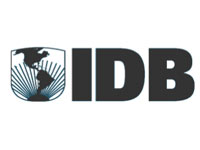 While the Ingraham administration has received harsh criticism in the past several months over the alleged mismanagement of the New Providence Road Improvement Project (NPRIP), an Inter-American Development Bank (IDB) executive yesterday defended the massive cost overruns associated with it.
While the Ingraham administration has received harsh criticism in the past several months over the alleged mismanagement of the New Providence Road Improvement Project (NPRIP), an Inter-American Development Bank (IDB) executive yesterday defended the massive cost overruns associated with it.
“A major driver of cost is the international price of oil,” IDB’s General Manager for the Caribbean Department Gerard Johnson said at the Ministry of Finance during the signing of a $65 million IDB loan to help fund the cost overruns associated with the NPRIP.
“Nobody has a crystal ball. So the only way you can allow for that is to have appropriate transparent mechanisms to adjust for when these things happen. The other thing is when you are dealing with urban roads. There’s nobody who can design a project that anticipates everything under the ground when you dig it up. So there are certain structural things in a project like this that no matter who are you, no matter how intelligent you are, no matter how much prior work you do there are going to be contingencies, surprises, unplanned things along the way that have a price tag.”
Major challenges associated with the project include the discovery of a number of sink holes; mapped, unmapped and unaccounted for underground utilities, which required modified drawings; and the escalation of fuel costs.
As a result, the government has to come up with an additional $77 million in order to complete the project, which is nearly $100 million over budget. The project, which was estimated to cost $119.9 million in 2008, now has a price tag of $206 million.
Johnson said the topic of cost overruns in general has been the subject of hours of debate at the IDB. Coincidentally, he said the request for additional funding for the NPRIP was the first project to come along as the debate was raging.
“[The question was] under what conditions should we finance infrastructure projects because they always end up having cost overruns? Why can’t we get it right? And the conclusion was – and I know this may sound odd to you, but – you can’t get it right,” he said.
He added: “So unfortunately the conclusion that we came to in the bank, looking at Brazil, looking at Colombia, looking at Trinidad and Tobago – there’s some things that you have to take onboard – the fact that there is an unknown.”
But Deputy Prime Minister Philip Brave Davis said while he appreciates Johnson’s point of view, that doesn’t change his position much.
“There has to be a mechanism that we can minimize the unknown through our experiences,” Davis said.
“Theres one thing to have overruns but when the overruns [are] as much as the original cost that is when it becomes troubling.”
However, he acknowledged that the government recognizes that the project could not have avoided all of the challenges.
Still, Davis said he is not satisfied that an examination of the exercise may not have produced a different result.
“That is what we are looking into for lessons so that these things can be avoided in the future,” he said.
Davis said that “time and reflection of the project will determine if the project was properly priced and if the Bahamian public has gotten real value on the money spent”.
“We will be most pleased when these whole project is behind us,” he said.
Johnson added that while the project wasn’t a slam dunk, the important thing is “that at the end of this process the benefits continue to far outweigh the cost – even the additional costs”.
He said the IDB has turned down other cases because of cost overruns.
“However, we have analyzed it to death in terms of is the cost worth it … yes it is,” he said.
By Krystel Rolle
Guardian Staff Reporter

